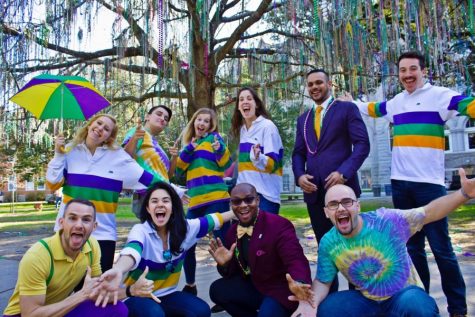
Tulane University has strategically marketed itself as a product of New Orleans, supposedly offering students an unmatched cultural experience. As a result, students choose Tulane for New Orleans, as much as they do for its education.
“Growing up in a small coastal town in the Northeast, I came to New Orleans seeking change and even excited for the culture shock,” sophomore Jennah Al-Hachem said.
Eighty-seven percent of Tulane’s student body comes from out-of-state, with 47% of those students hailing from the Northeast and 12% from the West Coast. More so than at other schools, students make an effort to integrate Tulane into their identity, but does Tulane’s portrayal of New Orleans authentically capture the city’s essence and rich heritage?
Its biggest annual event is Mardi Gras, yet most Tulane students engage in the commercialized version of the historic holiday. Students flock to St. Charles Avenue and attend as many parades as physically possible without delving into the historical background of each krewe. They equally anticipate “Tequila Sunrise,” the longstanding practice of celebrating through the night before Mardi Gras. Unfortunately, the celebration stops at sunrise for all but the few dedicated students who make it to the morning’s Krewe of Zulu parade.
While Mardi Gras spirit dominates during the holiday itself, its influence permeates campus culture all year. Tulane’s resurgent football program, in particular, incites much of the same excitement as Mardi Gras. In a city that was ranked No. 8 in “Best Cities for Football Fans,” it would be fitting for Tulane fans to match the fervor of New Orleans Saints fans. Oftentimes, however, game days resemble the commercial feel of Mardi Gras festivities, as flamboyant outfits, parties and alcohol are among the most popular ways to prepare for games. For many individuals, football becomes a social spectacle, rather than the lifestyle it is across the rest of New Orleans.
Tulane further attempts to promote New Orleans culture through cuisine. At The Malkin Sacks Commons, Creole options are offered every Monday, as well as other scattered days. But Philippe Soileau, a student who grew up in Eunice, Louisiana, said “While those options are somewhat authentic to the New Orleans food scene, they often try to pass dishes as Cajun, when in reality, they are Creole.” This is yet another case of Tulane attempting to showcase its Louisiana ties without presenting a truly accurate representation of its culture.
While certain aspects of campus life lack comprehensive cultural authenticity, Tulane has included an appreciation for the rich history of New Orleans within its education, offering a broad range of highly-acclaimed courses related to the city and region. Professor Randy Sparks teaches two intensive history courses about southern culture: “The Old South” and “The New South.” Professor Rien Fertel instructs another course on the 300-plus year history of New Orleans. Additional courses cover various topics, including New Orleans music, its architecture, environment and, of course, food.
Tulane puts forth a romantic version of New Orleans that students instantly welcome. If students can continue to revel in the adventure that is Tulane, while also taking the time to fully understand the complexities of the unique city they live in, their experience will be far more valuable. That may just involve taking a small step out of their comfort zone or perhaps going a step further and incorporating those learned experiences into their identity. Regardless, students should be constantly willing to embrace this extraordinary place we call home.



Leave a Comment